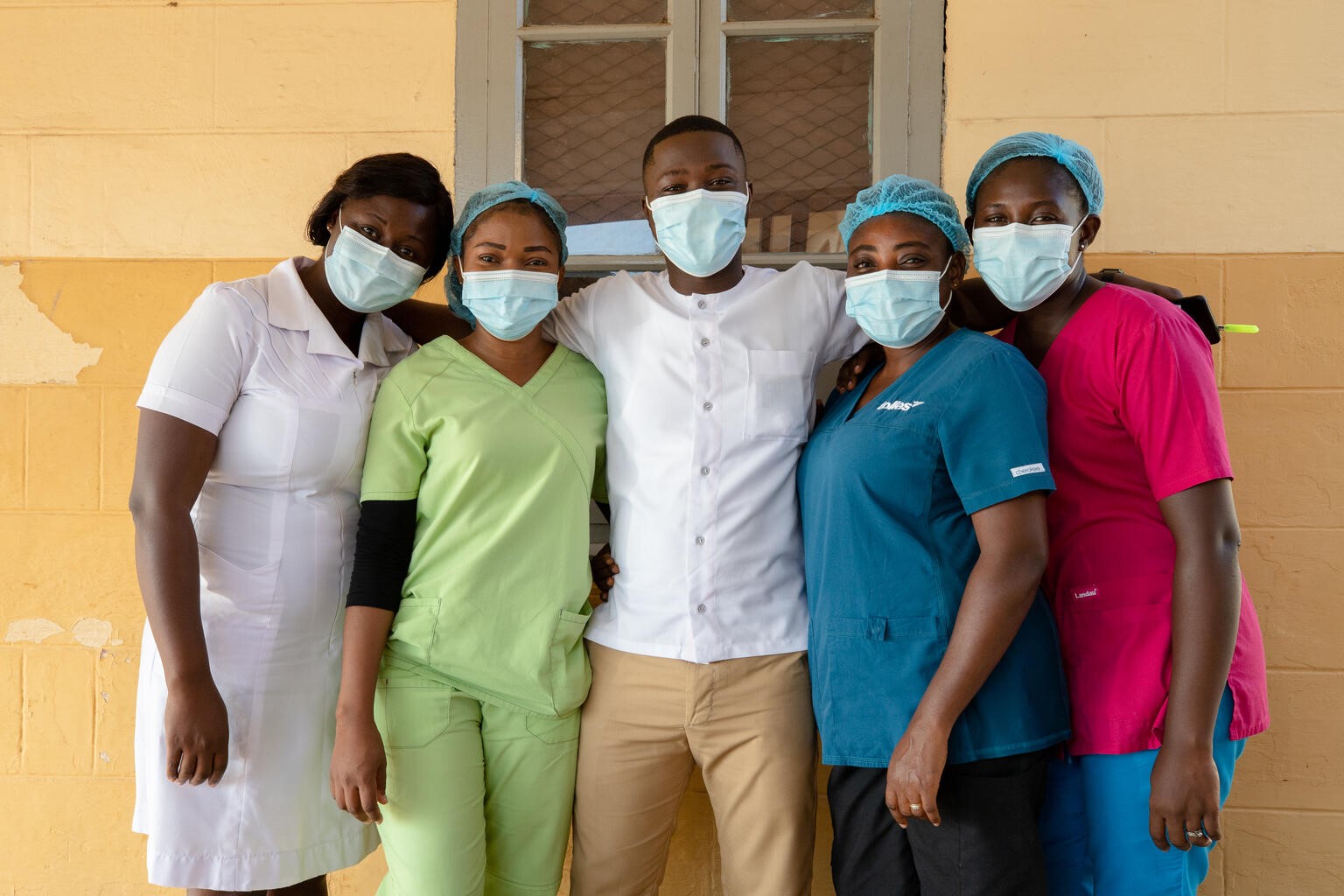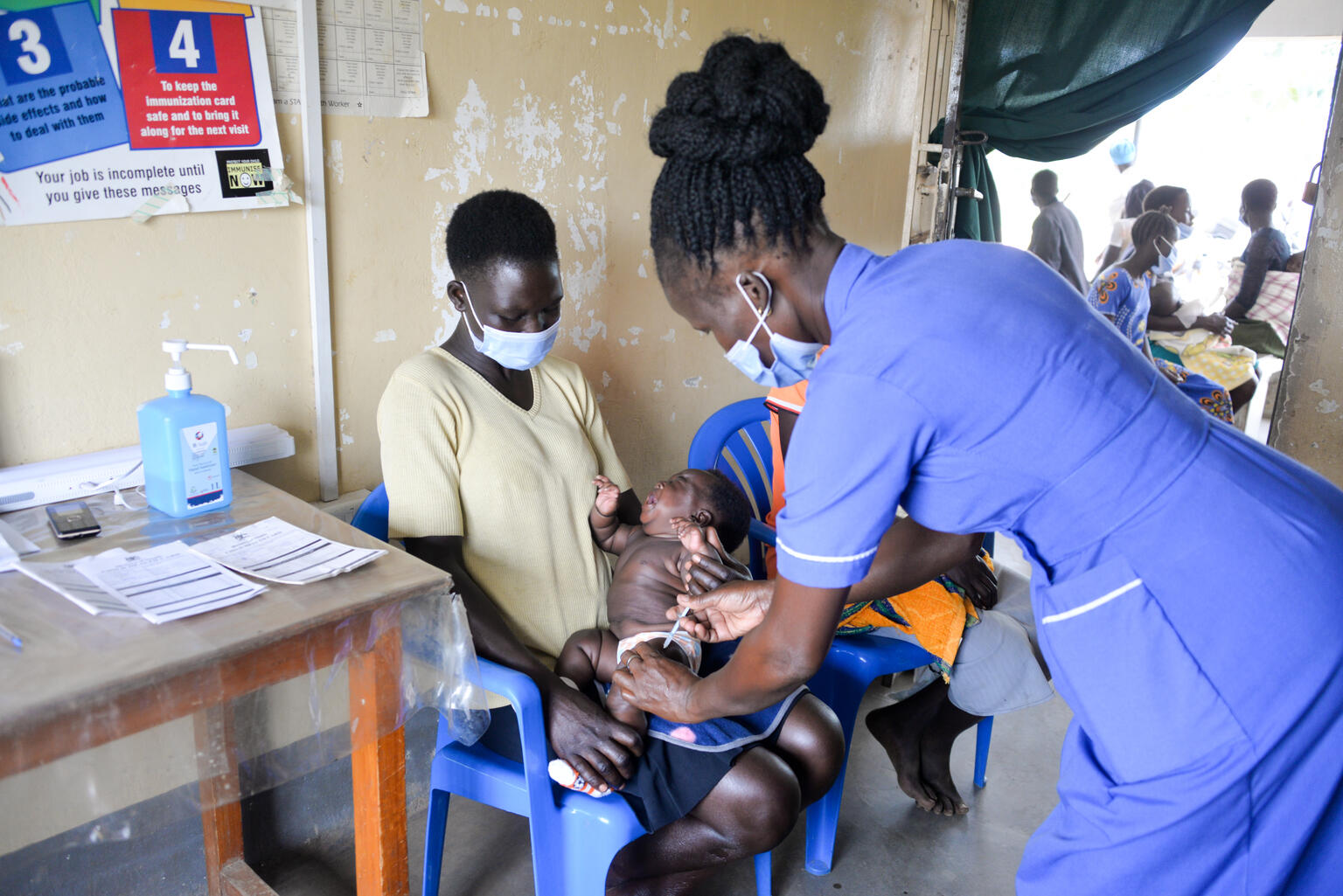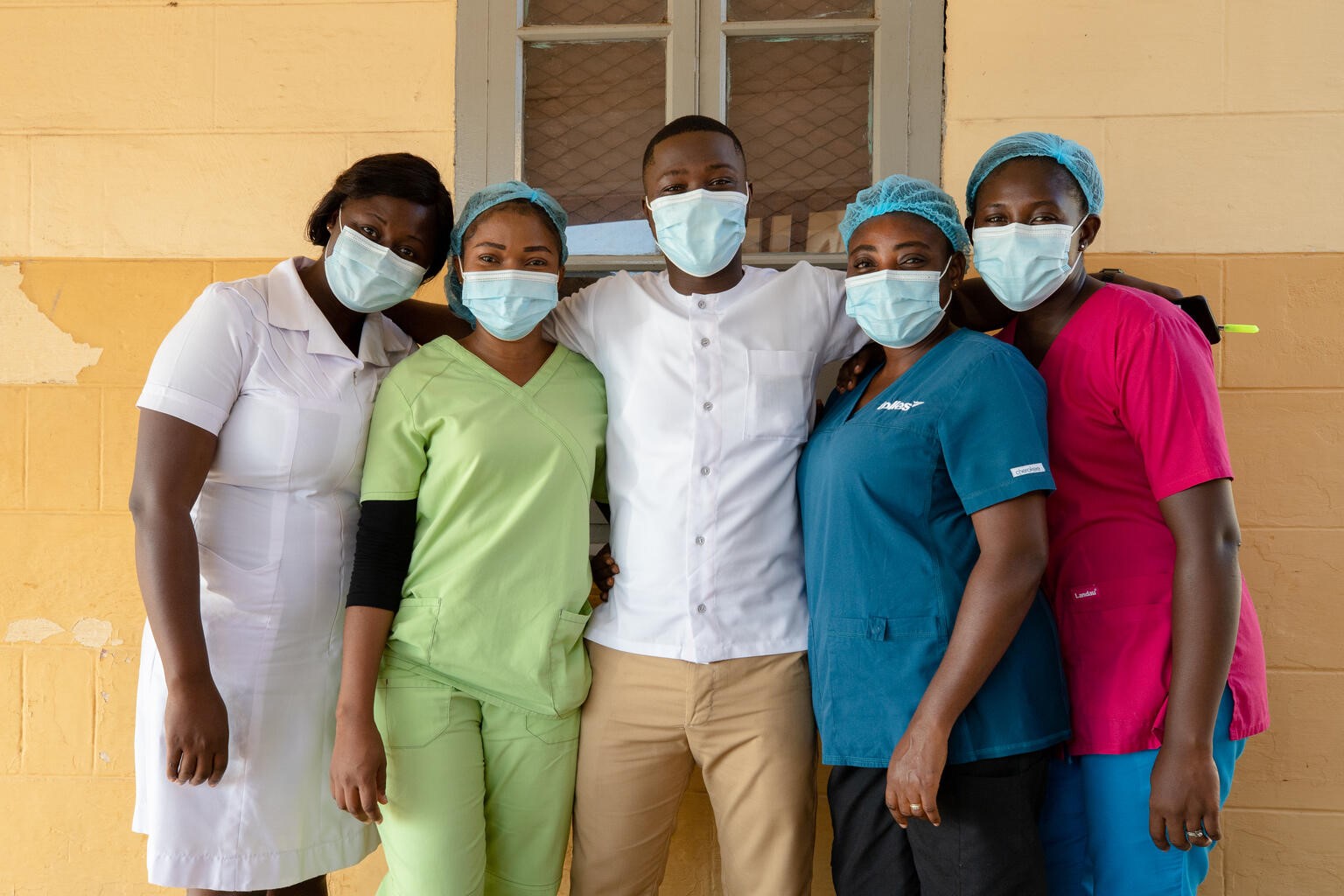Strengthening the Global Health Workforce
During World Health Worker Week, we explore the partnerships working to strengthen the global health workforce, the backbone of immunization programs everywhere.


UNICEF/Mathais Mugisha
It’s no question that health workers make up the foundation of health systems and are the driving force to achieving universal health coverage. As we begin to rebuild these systems in a post-COVID world, startling new challenges have emerged. The World Health Organization projects a shortfall of 18 million health workers by 2030, mostly in low- and lower-middle income countries. Such a large gap in health workers presents a huge threat to global health systems, which are essential to achieving health for all.
This World Health Worker Week, Shot@Life is proud to highlight our partnership with Takeda Pharmaceutical Company Limited, which directly supports universal health coverage (UHC) efforts, and helps strengthen global health systems. These efforts are critical to achieving UHC as part of the UN Sustainable Development Goals. Takeda’s 550 million yen pledge (over $5 million USD) to Shot@Life exemplifies their collective commitment to disease prevention, capacity building, access to healthcare, and health system strengthening in developing countries.
An Irreplaceable Gap
The COVID-19 pandemic has weakened health systems worldwide, exposing huge vulnerabilities and gaps in the system. It’s driven burnout among health workers to crisis levels, exacerbating a global shortage of health workers and the challenges they face. About 1 in 5 health care workers have quit their jobs since the pandemic due to exhaustion and lack of support for their institutions. While clinics and hospitals are still coping with waves of COVID-19 patients, health systems are seeing labor shortages and an increasingly overstretched workforce.
Globally, an estimated 80,000 to 180,000 health workers have died from COVID-19 between January 2020 to May 2021. These deaths are a tragic loss in the health care system, underscoring the urgent need to minimize risk of COVID-19 infection among health workers and provide the essential resources and support they desperately need.
Even before the pandemic, countries at all socioeconomic levels experienced shortfalls in the education, employment, and retention of a strong health workforce. Moving towards UHC requires strengthening health systems in all countries and investments in primary health care around the world.
Build the Health Workforce Back Better

UNICEF/Francis Kokoroko
As the COVID-19 pandemic has shown, countries need to scale up investments in a strong health workforce. The universal health coverage model is key to delivering on this commitment. By protecting health workers from financial hardship and inequalities, we can achieve a world where health systems are stronger and health as a human right is a reality.
Achieving UHC requires multiple approaches. With women representing 70% of the healthcare workforce, developing and enforcing gender-based policies is essential to protect and support them. By improving working conditions and investing in our health workforce, we can better prepare for the next pandemic. Disease outbreaks can be stopped when health workers better coordinate prevention, detection, and response efforts.
It is crucial we invest in the education and training of health workers around the world. That’s why WHO is launching the Global Competency and Outcomes Framework towards UHC during this World Health Worker Week. This framework will provide key support to countries’ health system development efforts to help them move towards and sustain UHC.
Health workers are the backbone of strong health systems. The health workforce has a vital role in building strong communities and health systems to respond to emergencies like COVID-19 and beyond, and they need our support!
